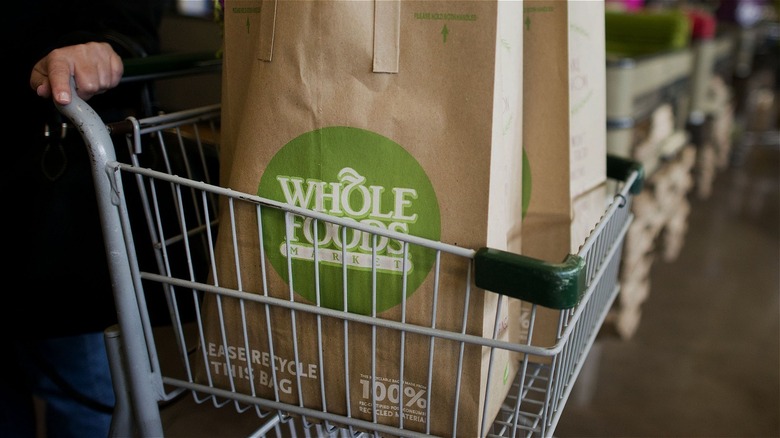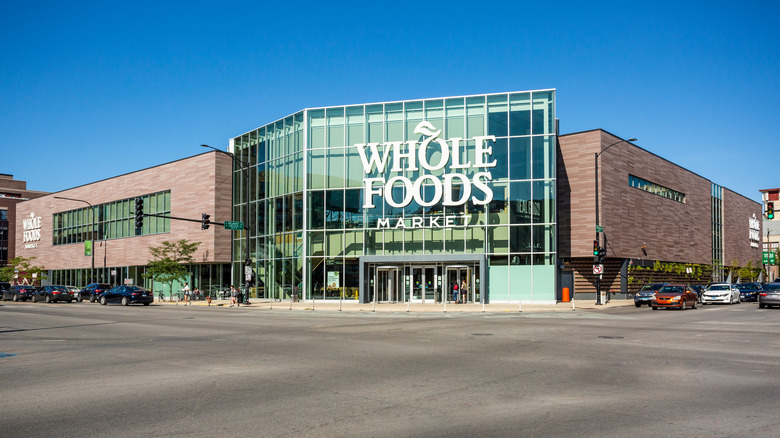The Tragic Thing That Happened To The First Whole Foods
Whole Foods is the largest organic food retailer in the United States, per Britannica. Thanks to its acquisition by Amazon, it has become a technologically driven company. As a testimony to its advanced state, most of its trading happens online, per New York Post. This is not surprising, because Amazon is reliant on tech for its functions.
At its humble beginnings, John Mackey and Renee Lawson Hardy combined their interests in 1980 to form a single outlet, per Britannica. Whole Foods was located in Austin, Texas and on one fateful day in May, the deluges coming down Shoal Creek nearly obliterated the fledgling company, doing damage in a manner that only nature can, per Inc.Africa. This happened a year after the store opened its doors. The damages amounted to $400 000 at a point when the company had no insurance. All the stock was rendered useless with a lot of the equipment blighted, per Company Histories.
As you might imagine, this was enough to bring any company to its knees. But how did Whole Foods manage to survive and thrive?
What saved Whole Foods
The organic retailer would most likely have faded into history had it not been for the community members in the form of employees and customers: everybody pitched in with brooms and mops and got their hands dirty to repair and restore the outlet. With a little help from creditors, the store opened its doors again less than a month later. Community assistance is what helped the company, and it was without expecting a dime in return, per Inc.Africa.
Some saw this business as "hippies selling to other hippies," per Product Habits. We can tell by its growth over the last four decades and the contents of John Mackey's book "Conscious Capitalism," that this is not the case. In his book, Mackey speaks of being socially responsible and operating in a manner that is "ethical towards all stakeholders" the customers included, the benefit of which was enjoyed in 1981. Amidst his other points he also emphasizes conscious leadership and culture, per Investopedia.
Ultimately it seems as if the principles on which infant-Whole Foods was built is what saved it during a period of tragedy.

